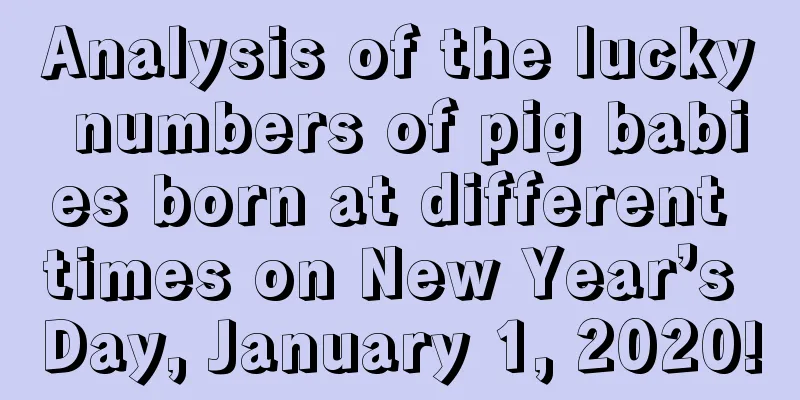What is the relationship between the Dragon Boat Festival and Qu Yuan? In addition to Qu Yuan, which ancient people are commemorated during the Dragon Boat Festival?

|
More than two thousand years ago, the patriotic Qu Yuan sank into the Miluo River forever along with the fallen Chu State. The Dragon Boat Festival is also known as the Dragon Boat Festival. Since ancient times, there has been a custom of dragon boat racing on the Dragon Boat Festival. The customs of the Dragon Boat Festival in 2018 vary from place to place, and contain profound Chinese traditional folk culture. When is the Dragon Boat Festival in 2018? This year's Dragon Boat Festival is on the 28th day of the third lunar month in 2018 (lunar calendar), which corresponds to the 13th day of the fifth lunar month in 2018, which is a Sunday in the Gregorian calendar. The Dragon Boat Festival falls on the fifth day of the fifth month of the lunar calendar every year. According to the "Jingchu Sui Shi Ji", because people climb high places in midsummer when the sun is in the sky, and May is midsummer, its first noon is the day for climbing high places in the sky, so the fifth day of May is also called the "Dragon Boat Festival." The Dragon Boat Festival is a traditional cultural festival popular in China and other countries in the Chinese cultural circle. What is the relationship between Qu Yuan and the Dragon Boat Festival?According to the "Biographies of Qu Yuan and Jia Yi" in "Records of the Grand Historian", Qu Yuan (about 339 BC - about 278 BC) was a native of Danyang (now Zigui, Hubei) in the State of Chu during the late Warring States Period and a minister of King Huai of Chu during the Spring and Autumn Period.According to legend, Qu Yuan advocated the selection of virtuous people and the empowerment of them, the enrichment of the country and the strengthening of the military, and strongly advocated the alliance between Qi and Qin. He was strongly opposed by aristocrats such as Zi Lan. Qu Yuan was dismissed from his post, driven out of the capital, and exiled to the Yuan and Xiang River basins. During his exile, he wrote poems such as "Li Sao", "Heavenly Questions" and "Nine Songs", which were full of concern for the country and the people. These poems have unique style and far-reaching influence (hence, the Dragon Boat Festival is also called the Poet's Day). In 278 BC, the Qin army conquered the capital of the Chu State. Qu Yuan was heartbroken to see his country being invaded, but he could not bear to abandon his country. On May 5th, after writing his last work "Huaisha", he hugged a stone and jumped into the Miluo River to commit suicide, thus composing a magnificent patriotic piece with his life. After Qu Yuan jumped into the river, local people immediately rowed boats to rescue him, and they went all the way to Dongting Lake, but they still couldn't find Qu Yuan's body. At that time, it was a rainy day, and the small boats on the lake gathered together near the pavilion on the shore. When people learned that the purpose was to salvage the loyal minister Qu Yuan, they once again went out in the rain and rushed to row into the vast Dongting Lake. In order to express their grief, people rowed boats on rivers and lakes, and this gradually developed into dragon boat racing. The people were afraid that the fish in the rivers would eat his body, so they went home and brought rice balls to throw into the river to prevent fish and shrimp from desecrating Qu Yuan's body. This later became the custom of eating rice balls. According to historical records, the earliest person to link Qu Yuan with the Dragon Boat Festival was Wu Jun of Southern Liang during the Northern and Southern Dynasties in "Continued Records of the Strange Things of Qi". At that time, Qu Yuan had been dead for more than 750 years. From the lost text of "Fengsu Tong" (written by Ying Shao in the late Eastern Han Dynasty) copied by Ouyang Xun of the Tang Dynasty, it can be seen that perhaps Qu Yuan's shadow was already in the Dragon Boat Festival customs during the reign of Emperor Ling of the Eastern Han Dynasty, but this was more than 400 years after his death. For thousands of years, Qu Yuan's patriotism and touching poems have been widely accepted by the people, so people "cherish and mourn him, discuss his poems, and pass them on to each other." Therefore, the idea of commemorating Qu Yuan has the widest and deepest influence and occupies a mainstream position. Whenever people talk about the Dragon Boat Festival, they always automatically link Qu Yuan with the Dragon Boat Festival. In the field of folk culture, Chinese people regard the Dragon Boat Festival's dragon boat race and eating rice dumplings as being related to commemorating Qu Yuan. Other historical figures commemorated during the Dragon Boat FestivalBut in addition to Qu Yuan, there are several versions of other historical figures related to the Dragon Boat Festival. What these figures have in common is that they all threw themselves into the river at the end of the legend, passing down their virtues, thus forming today's Dragon Boat Festival culture. Here, I will give you two of the most famous ones as examples.1. Another legend about the Dragon Boat Festival, which is widely circulated in Jiangsu and Zhejiang areas, is to commemorate Wu Zixu in the Spring and Autumn Period (770-476 BC). Wu Zixu, whose name was Yuan, was a native of Chu. His father and brother were both killed by the King of Chu. Later, Zixu turned to the light and fled to the State of Wu, helping Wu to attack Chu. After five battles, he entered the capital of Chu, Yingcheng. At that time, King Chu Ping had died. Zi Xu dug up his tomb and whipped his corpse 300 times to avenge the murder of his father and brother. After the death of King Helu of Wu, his son Fuchai succeeded to the throne. The morale of the Wu army was high, and they won every battle. The Yue Kingdom was defeated. King Goujian of Yue asked for peace, and Fuchai agreed. Zixu suggested that the Yue Kingdom should be completely destroyed, but Fuchai did not listen. The prime minister of Wu Kingdom was bribed by the Yue Kingdom and slandered Wu Zixu. Fuchai believed it and gave Zixu a sword, which led to Zixu's death. Wu Zixu was a loyal and righteous man who was ready to face death with equanimity. Before his death, he said to his neighbors, "After I die, dig out my eyes and hang them on the east gate of Wujing, so that I can watch the Yue army enter the city and destroy Wu." Then he committed suicide. King Fuchai was furious when he heard this, and ordered Zixu's body to be taken, wrapped in leather and thrown into the river on May 5th. Therefore, it is said that the Dragon Boat Festival is also a day to commemorate Wu Zixu. 2. To commemorate the filial piety daughter Cao'e, another legend about the Dragon Boat Festival is that it is to commemorate the filial piety daughter Cao'e who saved her father by jumping into the river during the Eastern Han Dynasty (23-220 AD). Cao E was a native of Shangyu in the Eastern Han Dynasty. Her father drowned in the river and his body was missing for several days. At that time, the filial daughter Cao E was only fourteen years old and she cried along the river day and night. Seventeen days later, on May 5th, he also jumped into the river and carried out his father's body five days later. This became a legend and was then passed on to the county governor, who ordered Du Shang to erect a monument for him and asked his disciple Handan Chun to write a eulogy to praise him. The tomb of the filial daughter Cao E is located in Shaoxing, Zhejiang Province today. It is said that the Cao E stele was written by Wang Yi of the Jin Dynasty. To commemorate Cao E's filial piety, later generations built the Cao E Temple at the place where Cao E jumped into the river. The village where she lived was renamed Cao E Town, and the place where Cao E died for her father was named Cao E River. Therefore, it is said that the Dragon Boat Festival is also a day to commemorate the filial daughter Cao E. |
>>: What is the fate of a baby girl born on May 29th of the lunar calendar in 2018?
Recommend
When is Laba Festival in 2020? How to pass?
Speaking of Laba, nowadays people generally find i...
Is it possible to get married on February 22nd of the lunar calendar in 2018?
For more details about the lunar calendar for Feb...
Is February 14, 2020 a suitable day to install a bed? How to choose an auspicious time to install a bed?
Introduction: It is also necessary to choose an au...
Is today, May 29th of the lunar calendar 2019, an auspicious day for funeral and burial of the deceased?
Introduction: In our country’s traditional culture...
Is it appropriate to worship ancestors on New Year’s Eve in 2021? What is appropriate and what is not appropriate?
Chinese people have a tradition of respecting the ...
What time is the Great Heat in 2020? When does it start and when does it end?
When the Great Heat solar term begins and ends is ...
Is December 20th, 2021 suitable for caesarean section? What is the hexagram for this day?
The twelfth month of the lunar calendar is also kn...
What is the fate of people born in the beginning of autumn under the snake sign? Are they good-looking or not?
We all hope that we are born lucky, but different ...
Query of the position of the God of Happiness on May 21, 2018
The fifth month of the lunar calendar is consider...
The auspicious and inauspicious attributes of the eighth day of the eighth month in the Year of the Pig 2019, and the do’s and don’ts of the hour!
The day of school reopening has arrived and the s...
Interpretation of the lunar calendar for April 8, 2020: Is April 30 a good day?
Analyze whether a day is good or not through luna...
What is the fate of a baby girl born on April 25th of the lunar calendar in 2019?
In numerology, one can tell whether a person has a...
What can’t you do during the Beginning of Autumn in 2021? What are the taboos during the Beginning of Autumn?
After the beginning of autumn, all things begin to...
When is the Frost Descent solar term in 2019? What are the solar terms in autumn?
Frost Descent is the eighteenth solar term of the ...
What is the lunar calendar for June 27, 2020? Is it a good time to pick up the car?
June is also known as the hottest month of the ye...









